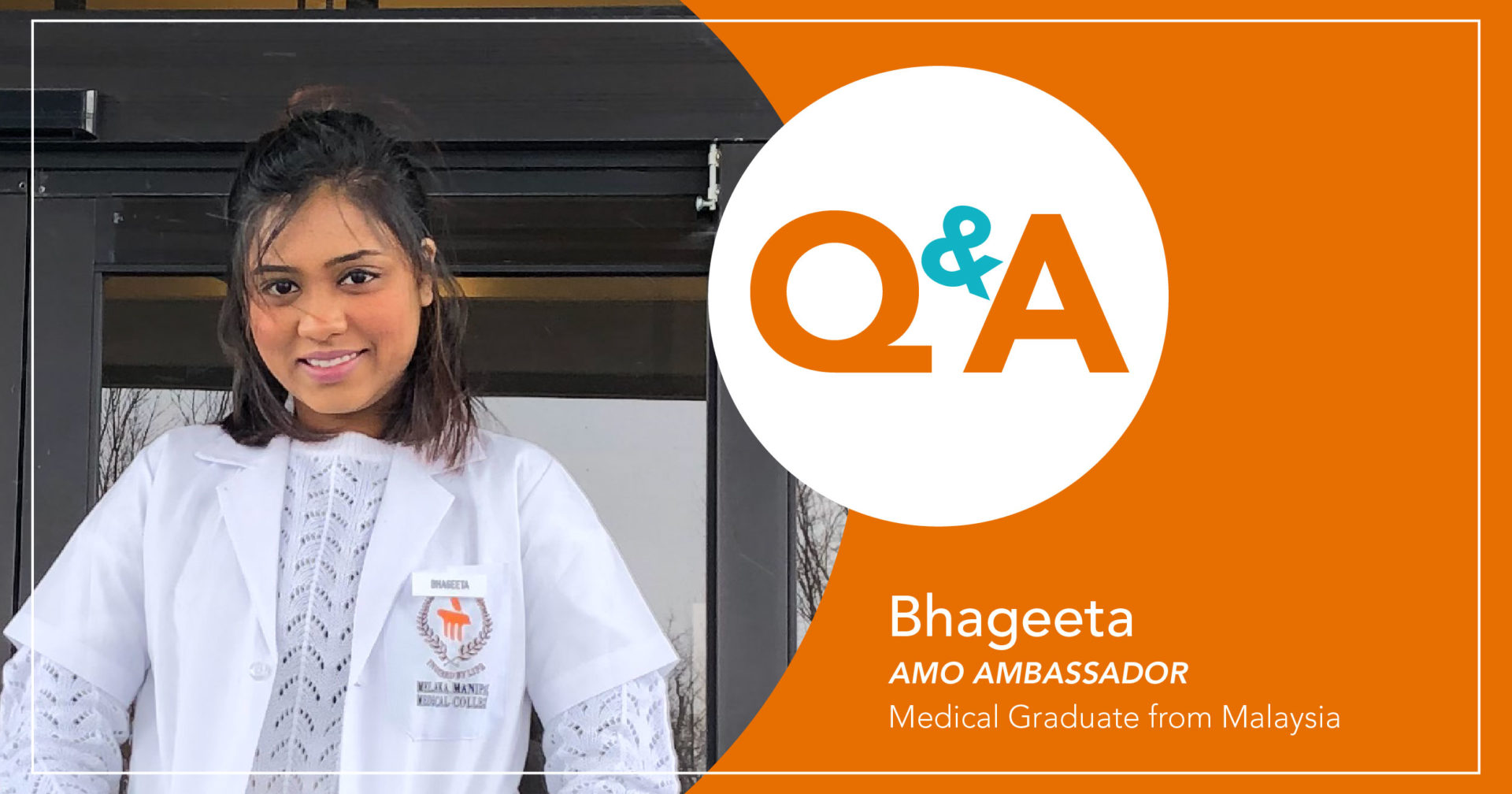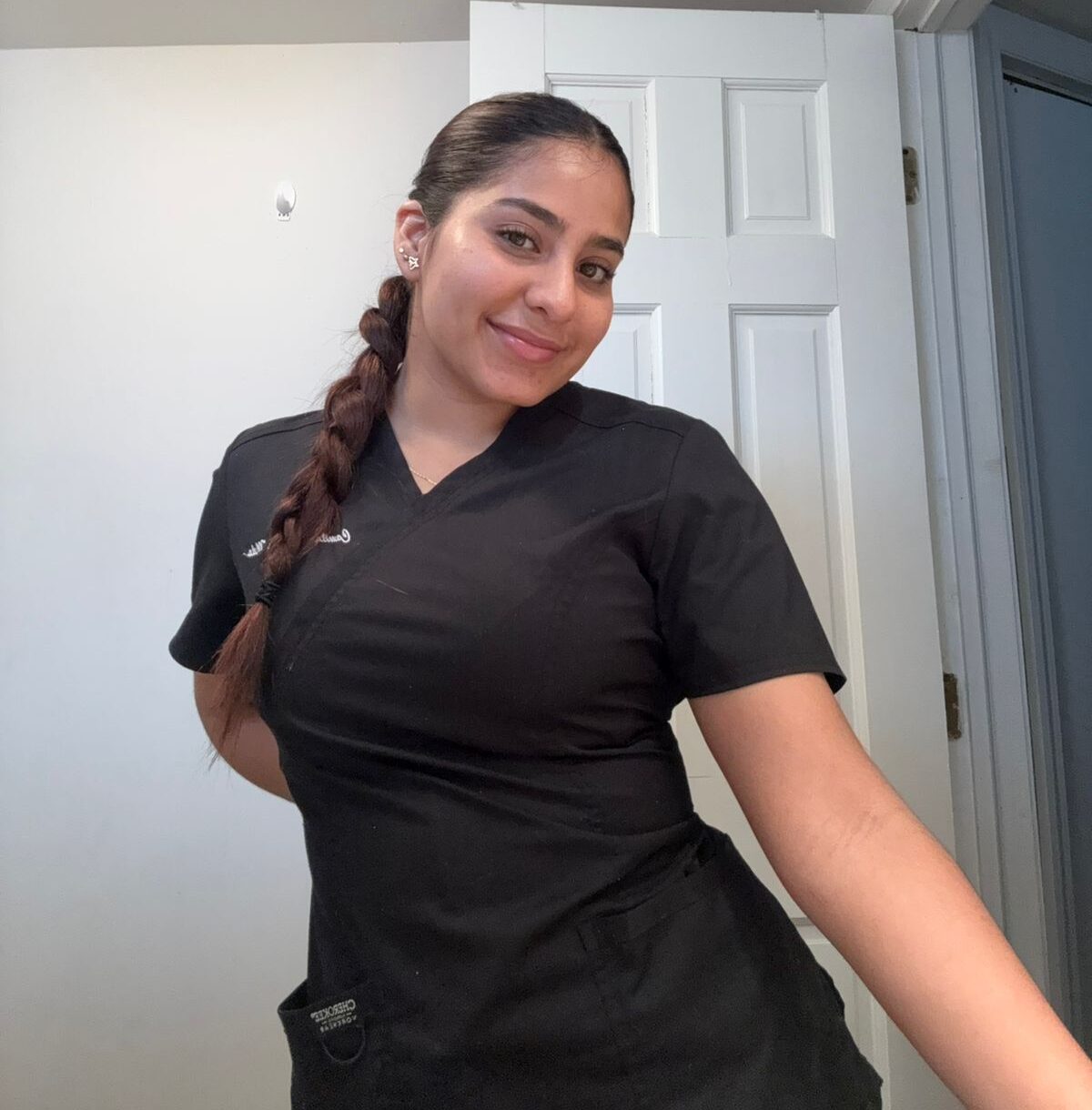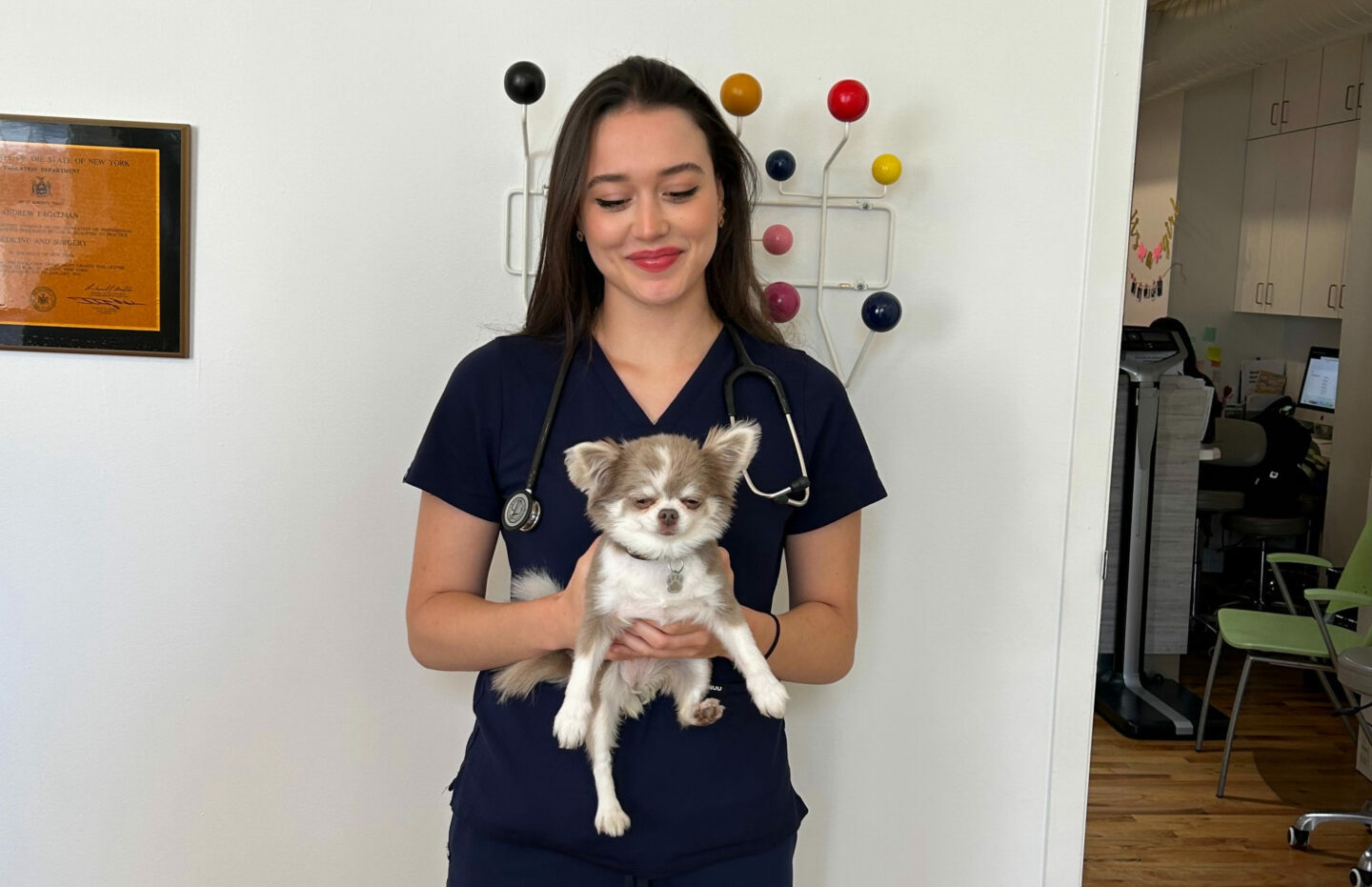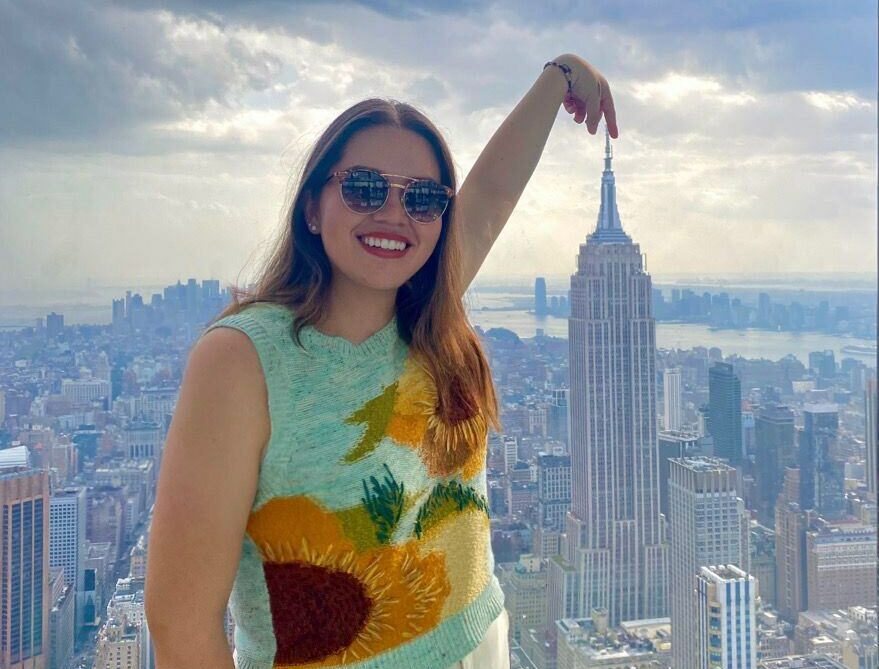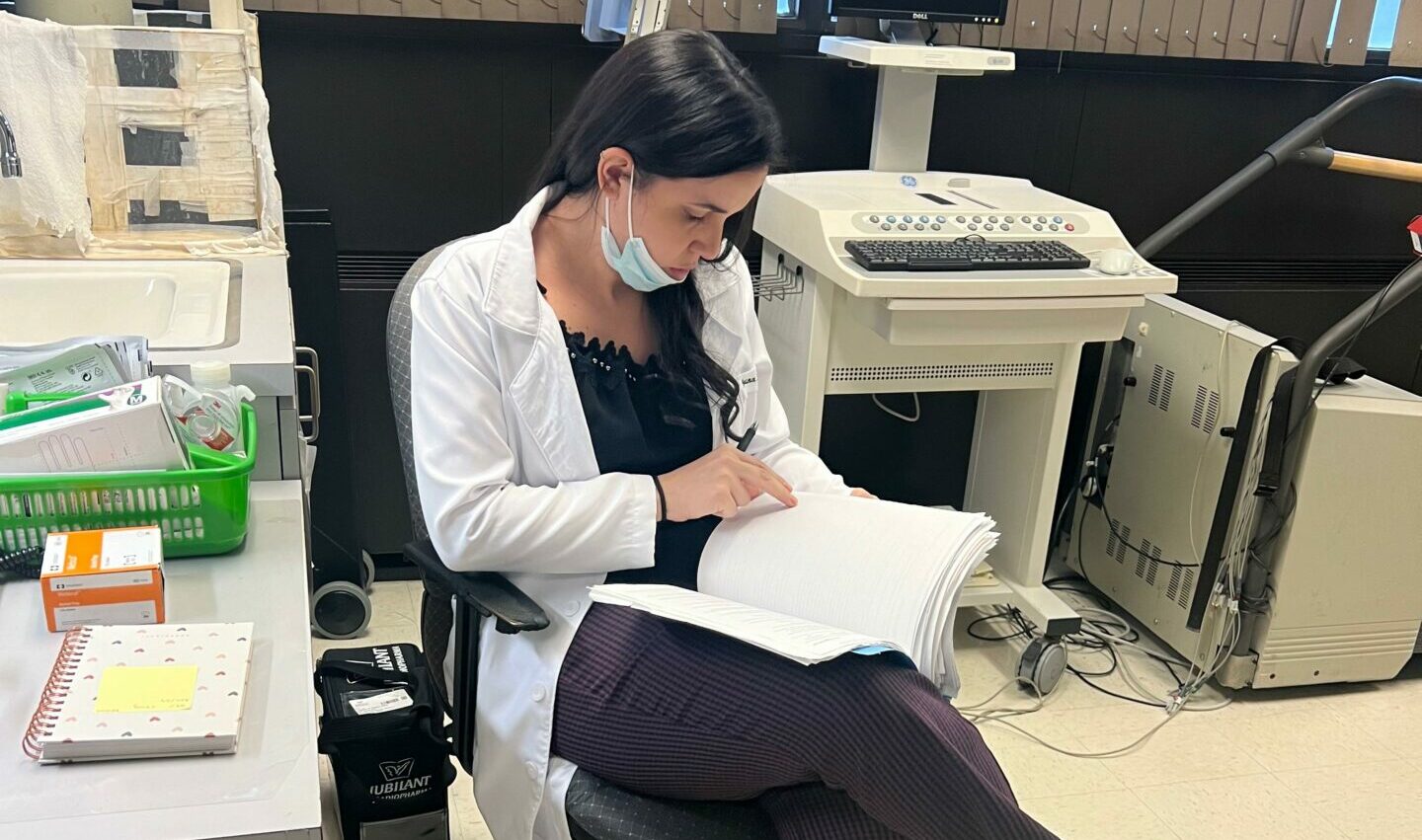If you follow us on Instagram or get our monthly newsletters, you might be aware that AMOpportunities has an ambassador program. Although our program was launched just one year ago, more than two dozen medical students, graduates, and professionals are a part of it. Who are these individuals? While they come from different countries and are at very different stages in their medical educations and careers, they share a commonality—they’ve found great value in our clinical experiences.
Bhageeta, a recent medical graduate joined our program last year—during her final year in medical school. While she graduated this fall, she’s still waiting to be assigned a housemanship where she’ll assume the title of junior doctor. Instead of letting this period of waiting cause anxiety, Bhageeta has found a creative outlet. To see what it is, continue reading our interview with her below!
If you’d like to learn even more about Bhageeta and her medical education journey, check out her Instagram. There you’ll also find a special AMO code to us when you book a rotation of your own!
Q: Can you tell us a bit about yourself and your medical education? What’s it like to finally be a medical graduate?
A: My name is Bhageeta and I recently graduated from Melaka Manipal Medical College. I completed my final year there last October, during 2020. Right now I’m waiting to be called for my housemanship program during which I will be a junior doctor.
Q: Looking back at your education, what did you like best about medical school? What did you like least?
A: Medical school can be fun, especially when you experience things no other professions get to. Being a medical student, you get to interact with real patients even before you graduate—you have the privilege of learning in a classroom and outside of it. It isn’t a typical college setting! In terms of what I liked least, I would have to say the lack of extracurricular activities. Being in medical school is stressful, I think there should be more activities/ and clubs that students can join to help them destress from time to time.
Q: You mentioned you’ll begin your house job soon, do you plan to practice in Malaysia after that or do you want to transition your career to the U.S.?
A: I plan to complete my junior practice here in Malaysia before pursuing my medical journey in another country like the U.S. I will be complete a two-years housemanship in Malaysia. Housmanships are required for anyone who wants to become a doctor in Malaysia. Once you complete it, you can go on to be a medical officer in a private or government-run hospital.
Q: What made you decide to participate in a rotation with AMO?
Honestly, I knew little about AMO before I found out I had to complete a four-week elective in my 4th year of medical school. I wanted to experience a new culture, see what it was like to work somewhere else. Learning about new places always thrilled me. I searched the internet for opportunities that fit these desires and found AMO. I was extremely happy as I was able to rotate without the USMLE. I tried out a rotation and even today, I don’t regret it.
Q: You’re interested in dermatology, OBGYN, and neurology. Do you have an idea of what specialty you would like to pursue for your career?
A: Having completed college, I think I have a better vision as to which specialty I would like to move towards. My focus is on dermatology—I’m making tiny steps towards a career in this area.
Q: How did you decide you were interested in this specialty? Was there a moment where you thought, ‘this is interesting’ or ‘I could be good at this’?
A: To be honest, I’ve always been in awe of dermatology. There’s so much to learn and experience in this field. Plus, there is a myriad of subspecialties I can pursue later on in life. I’ve always considered this specialty as one that provided personal and patient satisfaction. This field interests me more than any other I’ve come across.
Q: Are there any huge differences between healthcare in the U.S. and Malaysia? If so, what are they?
A: From my observations, there aren’t many differences between the healthcare of these two countries, I can only think of one. In Malaysia, all citizens get healthcare at a subsidized cost. Without an insurance policy, proper healthcare in the U.S. isn’t affordable. Other than that, they are comparable.
Q: Outside of medicine and being an AMO Ambassador, what interests you? Are there any hobbies you enjoy?
A: As a matter of fact, yes! I spend most of my free time making resin art. It’s a hobby I ventured into recently that has now turned into a small business. Making cute little works of art, packing, and then selling them gives me a sense of satisfaction. I do out of love, not for the money. I love the idea of starting a business—it is a fun way to keep yourself occupied.
Q: How do you balance your course load with your resin art, relationships, and other commitments? Is there a secret to making time for everything?
A: There is no secret. When I was in medical school, I always had time to do things that I loved. Whether it was going out with friends or making time to be creative, I had no issues managing it all, I believe it is all about creating the right mindset. School can be stressful so it’s important to remember to have a life outside it too. Yes, it’s important to make time to study but, it’s also important to make time for fun.
Q: Where do you see yourself in 20 years?
A: I see myself as a dermatologist with my own clinic. Ideally, I would be living in a cute little city. I’d also like to see myself being able to help those in need, possibly individuals who cannot afford proper medical attention.
Q: What’s the best piece of advice anyone has given to you?
A: I go by the principle that as long as you do good, and your thoughts don’t harm another being, you can be proud of yourself. Also, I always think of the phrase, “to be a good doctor, you have to be a good human being first.”
Get closer to graduating like AMO Ambassador Bhageeta!


